Eduardo Rodriguez-Tello
Fourier Series Guided Design of Quantum Convolutional Neural Networks for Enhanced Time Series Forecasting
Apr 25, 2024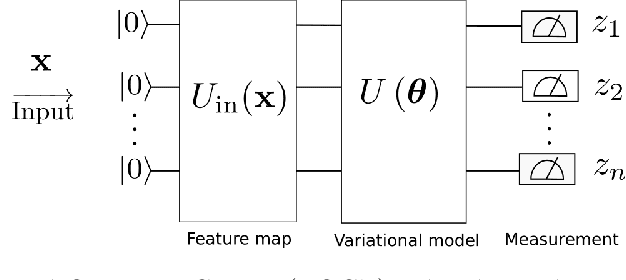
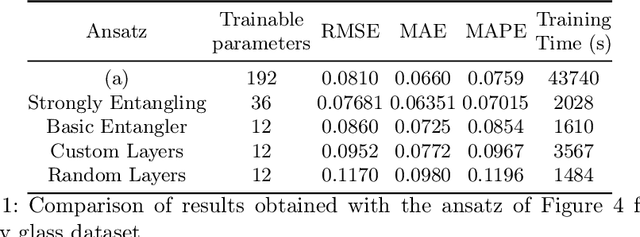
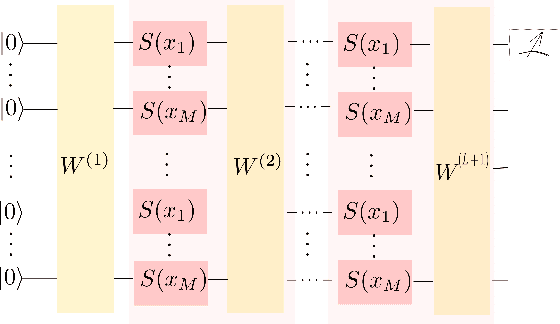
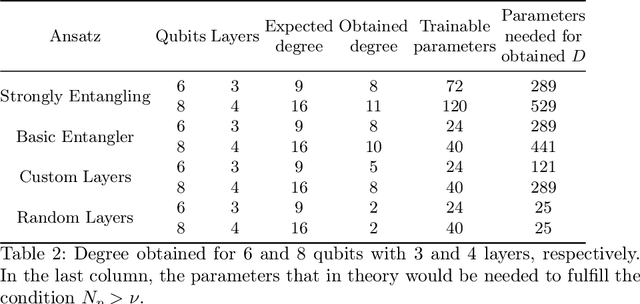
Abstract:In this study, we apply 1D quantum convolution to address the task of time series forecasting. By encoding multiple points into the quantum circuit to predict subsequent data, each point becomes a feature, transforming the problem into a multidimensional one. Building on theoretical foundations from prior research, which demonstrated that Variational Quantum Circuits (VQCs) can be expressed as multidimensional Fourier series, we explore the capabilities of different architectures and ansatz. This analysis considers the concepts of circuit expressibility and the presence of barren plateaus. Analyzing the problem within the framework of the Fourier series enabled the design of an architecture that incorporates data reuploading, resulting in enhanced performance. Rather than a strict requirement for the number of free parameters to exceed the degrees of freedom of the Fourier series, our findings suggest that even a limited number of parameters can produce Fourier functions of higher degrees. This highlights the remarkable expressive power of quantum circuits. This observation is also significant in reducing training times. The ansatz with greater expressibility and number of non-zero Fourier coefficients consistently delivers favorable results across different scenarios, with performance metrics improving as the number of qubits increases.
MACFE: A Meta-learning and Causality Based Feature Engineering Framework
Jul 08, 2022
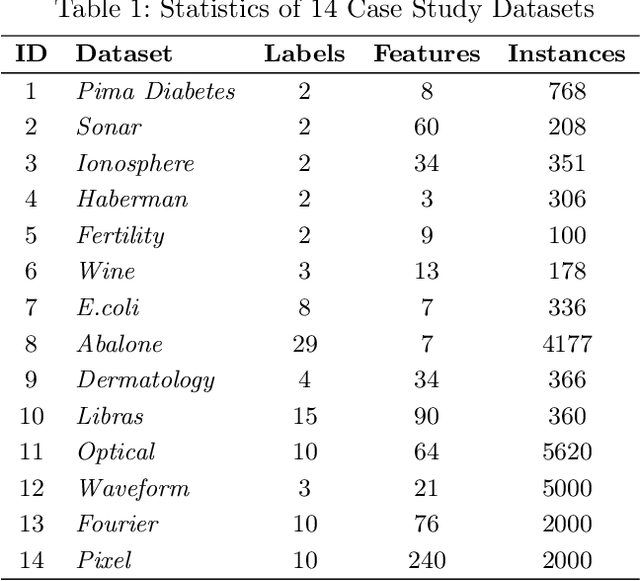
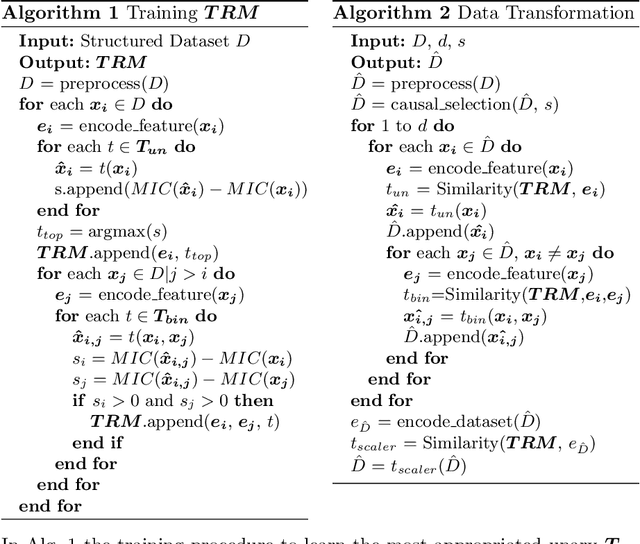
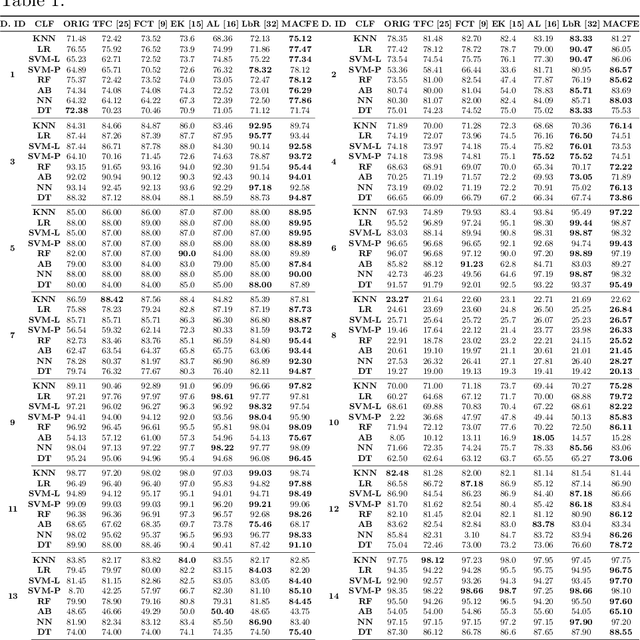
Abstract:Feature engineering has become one of the most important steps to improve model prediction performance, and to produce quality datasets. However, this process requires non-trivial domain-knowledge which involves a time-consuming process. Thereby, automating such process has become an active area of research and of interest in industrial applications. In this paper, a novel method, called Meta-learning and Causality Based Feature Engineering (MACFE), is proposed; our method is based on the use of meta-learning, feature distribution encoding, and causality feature selection. In MACFE, meta-learning is used to find the best transformations, then the search is accelerated by pre-selecting "original" features given their causal relevance. Experimental evaluations on popular classification datasets show that MACFE can improve the prediction performance across eight classifiers, outperforms the current state-of-the-art methods in average by at least 6.54%, and obtains an improvement of 2.71% over the best previous works.
 Add to Chrome
Add to Chrome Add to Firefox
Add to Firefox Add to Edge
Add to Edge